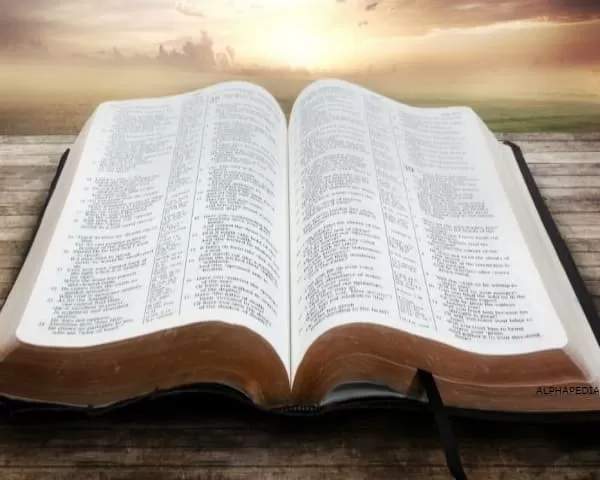Ecclesiastes 1. As the Bible Says:
Ecclesiastes makes the ball roll by identifying himself as “the Master” (Koheleth or “Collector”), and says he was the son of King David. So, he has a serious authority from the beginning. He begins his royal teaching by saying “Vanity of vanities! All is vanity!” (Everything is simply “mere breath”). Then he gives examples of this, discussing how everything in nature repeats itself.
The sun rises and falls, and then it does so again. (Hurray.) The wind continues to blow circles around the land, and the water continues to run towards the sea.He goes on to say that everything that happened will happen again, and that everything that will happen has already happened: “There is nothing new under the sun” (1: 9). Ecclesiastes goes on to say that nothing that has happened will be remembered forever. Finally, everything is totally forgotten.
The teacher says a little more about himself. Now, he claims that he was also a king in Jerusalem, reinforcing his connection with the super-wise King Solomon. He says that God has given humans an “unhappy business” to occupy his attention. It’s just “chasing the wind,” a bit like this popular ballad from the 1960s.
The Master says that he, as King of Jerusalem, had more wisdom than anyone before him. This doesn’t exactly sound humble. However, he later said that he tasted both wisdom and “folly and madness,” which means that he probably went to some pretty crazy parties. But this was also “chasing the wind”. He ends the chapter by saying that as you get more wisdom, you also get more pain and sadness. But is that supposed to be wisdom too?
Commentary on Ecclesiastes 1: 1-3
Here we see Solomon returning from the broken and empty cisterns of the world, to the Fountain of living water; recording his own madness and shame, the bitterness of his disappointment and the lessons he had learned. Those who have taken the warning to turn and live should warn others not to go on and die. He says not only that all things are vain, but that they are vanity. Vanity of vanities, all is vanity.
This is the text of the preacher’s sermon, which in this book he never loses sight of. If this world, in its present state, were all, it would not be worth living; and the wealth and pleasure of this world, if we had so much, are not sufficient to make us happy.
What benefit does a man have from all his work? All that he gets will not satisfy the needs of the soul, nor satisfy its desires; it will not atone for the sins of the soul, nor prevent its loss: what profit will the wealth of the world be to the soul in death, in judgment, or in the eternal state?
Commentary on Ecclesiastes 1: 4-8
All things change and never rest. Man, after all his work, is no closer to finding rest than the sun, the wind or the river current. His soul will not find rest, if it does not have it from God. Senses soon get tired, but still long for what has not been tried.
Commentary on Ecclesiastes 1: 9-11
The hearts of men and their corruptions are the same now as in other times; their desires, activities and complaints, remain the same. This should lead us to expect happiness in the creature, and accelerate us to seek eternal blessings. How many things and people in Solomon’s day thought very well, yet there is no memory of them now!
Related Topics

MEANING OF SAMUEL IN THE BIBLE

LAMENTATIONS 4

HAGGAI 1:6

MEANING OF MICAH IN THE BIBLE

HAGGAI 2

ECCLESIASTES 2
Other Topics of Interest in ALPHAPEDIA

LAB STANDS DOUBLE TOP WIRE CLAMPS ¿ What it´s for ?

FREE BELLY DANCE CLASSES

FREE DRONE FLYING COURSE

HOW TO PAINT EXTERIOR WOOD ?

MAGENTA COLOUR: Meaning, Psychology and Types

FREE MASTER DEGREE IN PHYSICAL EDUCATION
Image of the Bible



